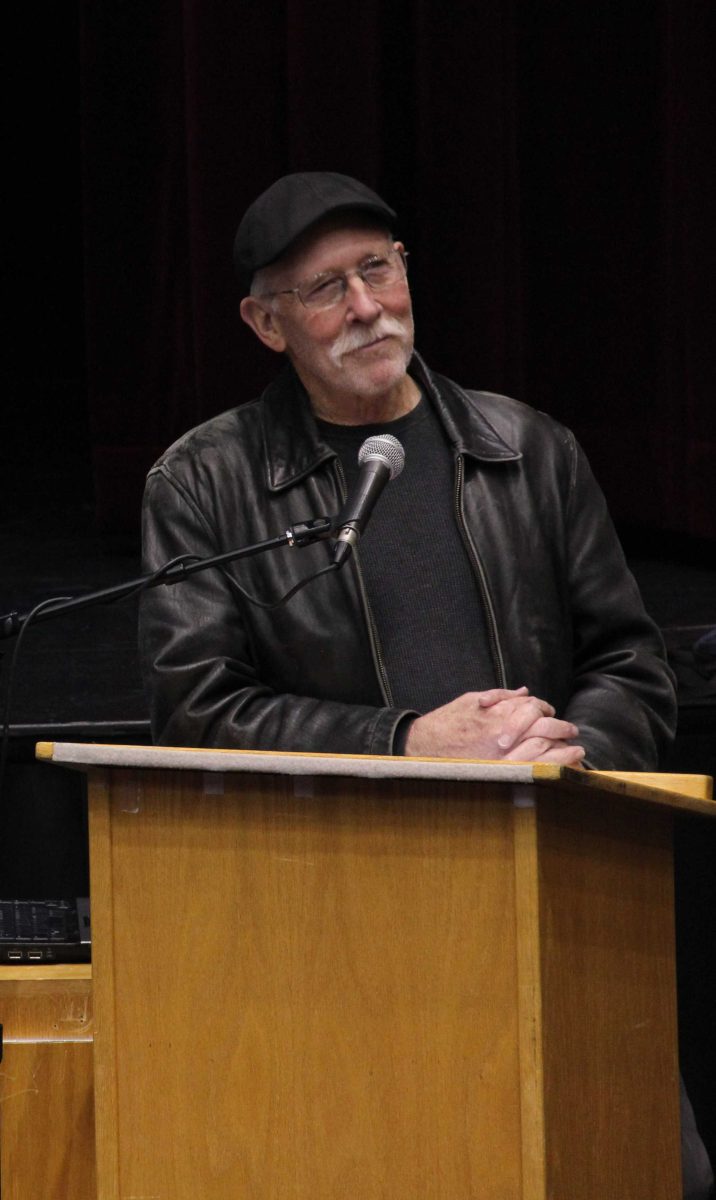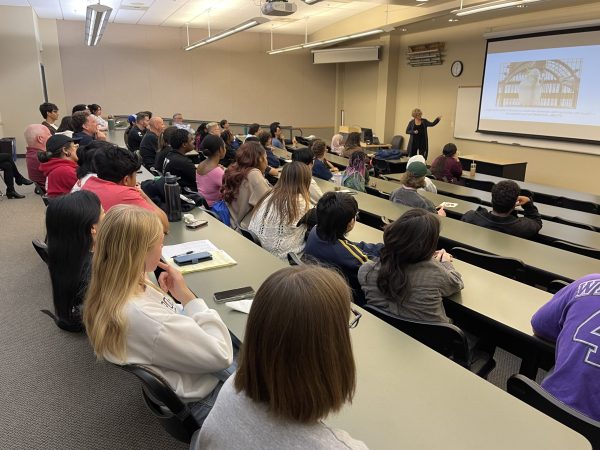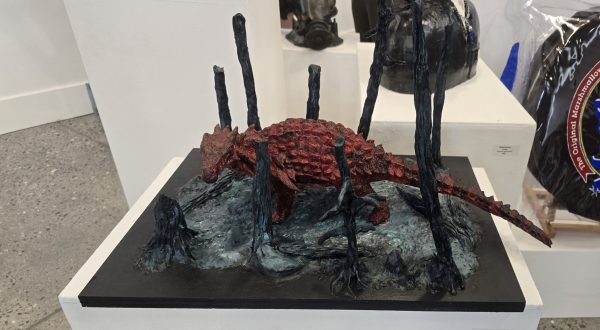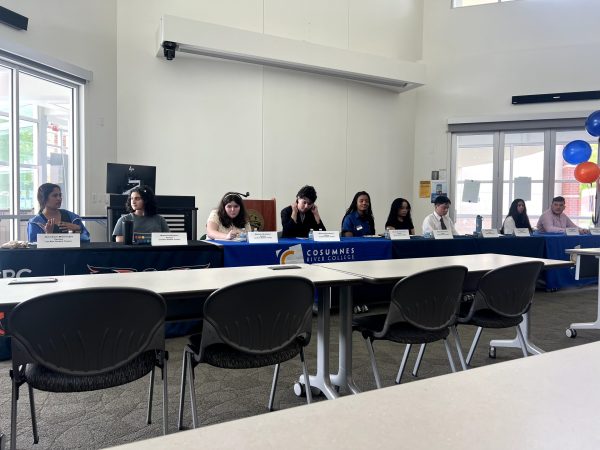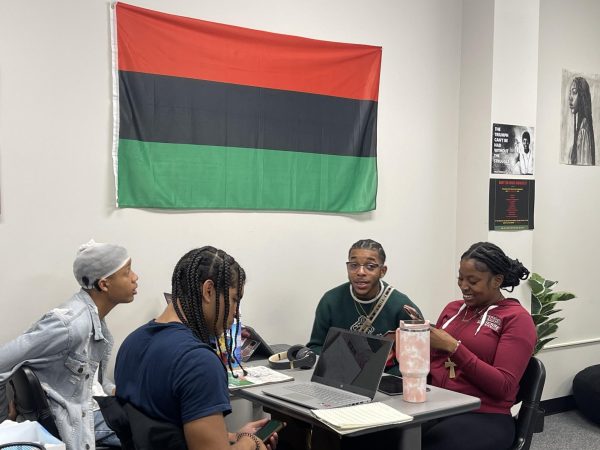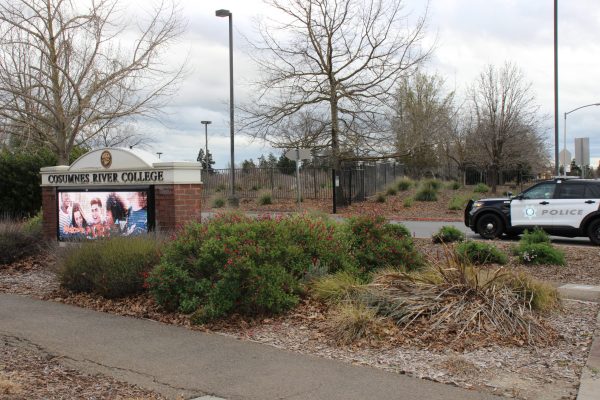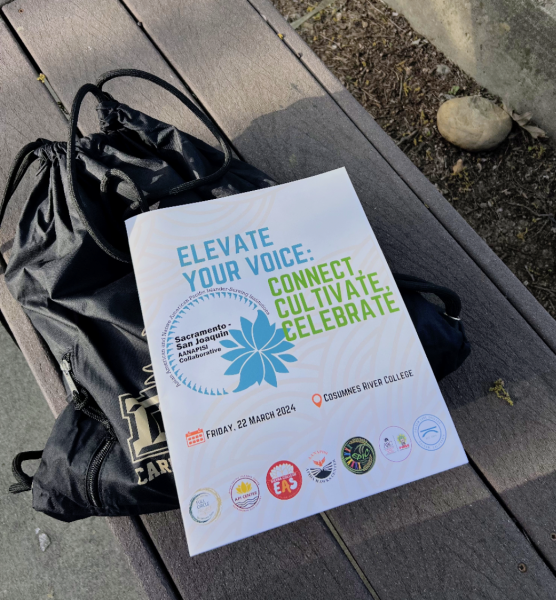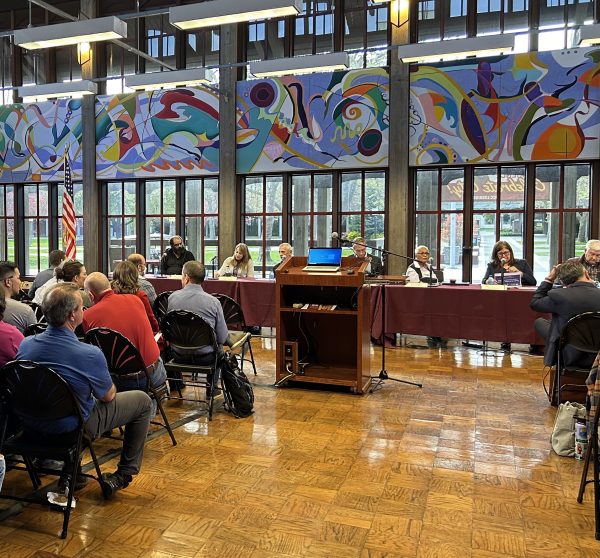Campus honors Cesar Chavez by recognizing his work
Author and journalist David Bacon speaks about Cesar Chavez and the struggles farm workers face in the Recital Hall on March 30.
The Commemoration of Cesar Chavez was held in the Recital Hall on March 30; a day before Cesar Chavez’s’ actual birthday. The event was organized to help students better understand what Cesar Chavez stood for.
Chavez was a farm worker himself, an american and was a civil rights activist. He fought for good working conditions, better treatment and better pay for farm workers.
He led peaceful protests and believed in boycotting companies that did not care about the wellbeing of their workers.
The speaker of the event, David Bacon said, “The fact that we are celebrating today means that we are celebrating social change, I think we are celebrating the fact that social justice is something we can win.”
Bacon, who is an author and journalist, has always advocated for better working conditions for farm workers. His goal is to get people to see that farm workers are still being treated unfair and to get people mad enough at the companies to do something about the injustice.
He presented many photos of the conditions workers face today while working and where they are living.
Bacon said people should boycott Driscoll’s Berries for still treating farm workers unfairly. He brought up a quote from Chavez said when it comes to boycotting.
“Chavez said, In order to win a boycott you only have to cut off 5 percent of the profit,” Bacon said.
This event is not only about what Chavez did but what we as a society should also do today to continue Chavez’s beliefs of how farm workers should be treated.
“It’s not history, it’s about now,” Bacon said.
Professor Jason Newman, of the history department, helped organized the event and said, “This event was organized for two reasons, to draw attention to the struggle of farmworkers in California and in conjunction with OneBook.”
Newman is for the cause and believes in what Cesar Chavez stood for.
“For me, as a worker and a union leader, Cesar Chavez Day means everything. Cesar Chavez worked hard for workers in general and farm workers in particular,” said Newman. “He emphasized the importance of labor struggles and a need for social justice today.”
Coming to the event, students’ eyes were opened and they were able to better understand the conditions affecting the farm workers today and expand their knowledge of what Cesar Chavez wanted to accomplish.
“This is my gente, my people. Being the first generation to go to the college, it makes me want to work harder and graduate and not be a statistic and say I did it but with a group of people behind me. We are celebrating social change,” said sociology and Chicano studies major, Alejandro Anguiano, also a member of the Puente program on campus.
This event was organized by the union and teaches students that this is an issue still going on today and to be aware that injustice happens right here on American soil to the hard working farm workers.
“But it’s not just a symbolic thing, I mean I think we are celebrating more than a person. I think we are celebrating a better life for farm workers but a better life for workers period,” Bacon said.

